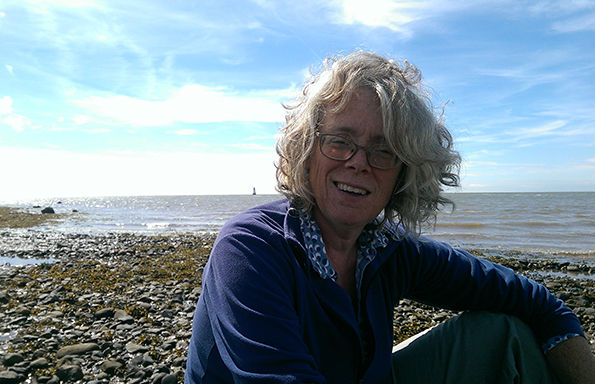Sarah Hymas on poetry and the sea
Published on

Sarah Hymas is in the second year of her PhD, Becoming Sea: The role of the lyric I in poetry of the sea, funded by the Arts and Humanities Research Council (AHRC) and within the University's Centre for New and International Writing
On one level I don’t expect to feel an expert as a poet after this PhD, part of the delight of writing is never entirely knowing what or how I’m producing.
However, undertaking this concentrated period of research is enabling me to extend the reach of my practice, which felt necessary two years ago.
I am immersed in an invaluable space in which to explore the intersection of phenomenological and factual elements within the marine based ecopoetics I was already writing; to understand more deeply the challenges within this field and how I might to forge a way through.
The more aware I became of the negative impact we were having on the sea - microplastic pollution, fish depletion and acidification from climate change – the more I wanted to explore the lyric’s potential to communicate the interrelationship between people and the sea, and create new stories and voices around it.
Inspired by how Rachel Carson’s Under the Sea-Wind and The Sea Around Us contextualise human exceptionalism as a limited land-based ideology, I am analysing how the poetry of Jorie Graham articulates and questions the relationships between the self, culture, politics and ecology.
I am particularly interested in conveying what we can and can’t see: the underwater and microscopic worlds of the ocean as well as the future impacts of our actions, and how pulling together an imaginative, experiential and scientific perspective can lead to new understandings of our relationships with what we see and experience.
My experiment is with loosening subjectivities, decentralising the lyric ‘I’, the porous boundaries between human and nonhuman, language and experience, past and future; and I’m trying to find an energetic balance between phenomenological, scientific and ecological writing within a poetic tradition.
As well as writing poetry I am developing my practice as an artistbook maker. My intention is to create an intimate travelling installation of artistbooks and audio pieces that will foreground our relationship with the ocean and investigate how this might inspire hope.
This element will culminate in a tour around the North West of England, beginning in Morecambe Bay, where I live. Because of the dynamic between local marine ecosystems and planet-wide ocean circulation I am planning a field trip to Svalbard, which I hope will feed into a wider conversation between local and global perspectives.
In this way I aspire to find a poetic communication that will offer news ways of seeing our current precarity in the context of alternative stories that lead to a change in sensibilities and thus, on a small-scale, the thinking that may arise from them.